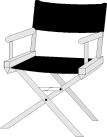 Director,
please
Director,
please Director,
please
Director,
pleaseQuestion from Oklahoma:
At a recent game I was directing, I had a problem deciphering the laws regarding multiple penalty cards. I hope you can clarify.
At the table in question, the defender made his opening lead and dummy tabled his hand. At the same time, the leader's partner also started laying his hand face-up on the table as if he were dummy. The other players stopped him quickly, but four cards were exposed -- the King and Queen of hearts (trumps) and two small spades.
Should these be treated as two major penalty cards (the honors) and two minor penalty cards?
The opening lead was the spade ace, so one of the penalty cards was played to that trick, leaving two hearts and one spade still exposed. What are declarer's options at this point? If he requires or forbids the lead of either of those suits, does the offender then pick up all the remaining penalty cards? Or just the penalty cards in the suit that declarer specified?
Finally, would the adjudication be any different if the defender had exposed all 13 of his cards?
Stevenson:
First, minor penalty cards only appear accidentally, either by being dropped or by being stuck to another card. So if a player puts a card down as though he was dummy, even a single card, it will be a major penalty card, not a minor one.
In fact, if you have two or more penalty cards, they are always major anyway. A minor penalty card is only ever a single card which is not an honour. So in this case, all four cards are major penalty cards.
When the defender with the penalty cards ["the offender"] had to play to the first trick, declarer, not the offender, can choose which spade is to be played.
Whenever his partner is on
lead while there is still at least one penalty card on the table, declarer has
options. So, after the spade wins trick one, declarer can:
Require a spade lead;
Forbid a spade lead for as long as offender's partner retains the
lead;
Require a heart lead;
Forbid a heart lead for as long as offender's partner retains the
lead;
Forbid either a heart or a spade lead for as long as
he retains the lead; or
Just let him lead what he likes.
If declarer requires or forbids a spade lead, the offender picks up his spade. If he requires or forbids a heart lead, the offender picks up both his hearts. If he forbids a spade lead and a heart lead, the offender picks up his spade and both his hearts. If he does none of these, the cards stay on the table as major penalty cards.
Let us suppose that declarer says "Play anything" and the defender leads a diamond. The offender will have to play a diamond, of course, but suppose he has not got one? Then declarer can choose which of the three penalty cards is played to that trick. This continues while the offender has two or three cards visible.
Finally, if the offender's partner loses the lead, then gets back on lead -- and if there are still one or more penalty cards -- declarer has the same options in the suits of cards still visible.
The law does not mention how many penalty cards, so if someone puts down their full hand, the above approach applies to 13 penalty cards. I once had 12 penalty cards; the director incorrectly ruled it as unplayable, and I was livid. Not because I had lost a very good score -- they later adjusted it for me -- but because I did not get the fun of playing it with 12 penalty cards!
Do you have questions about bridge laws, a ruling you received (or made) at a tournament or club game, how to handle an ethical dilemma?
David, who is very knowledgeable on North American bridge, will explain laws and proprieties, share opinions on specific cases and offer advice on any aspect of game direction, rulings, alerting, conventions and other laws-related topics. He is a European Bridge League (EBL) tournament director and scored the top mark on the EBL director's exam, generally considered to be the toughest exam in the world.
Please submit your questions to kwalker2@comcast.net and they will be forwarded to David for answers. Or email David directly at webjak666@gmail.com .
David maintains an archive of articles on laws and proprieties on his web site: http://blakjak.org/lws_menu.htm